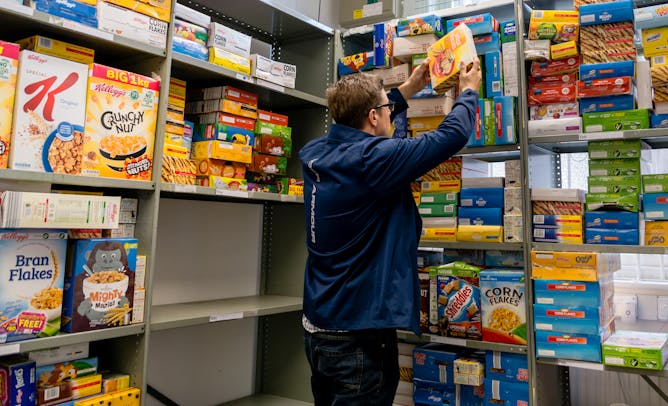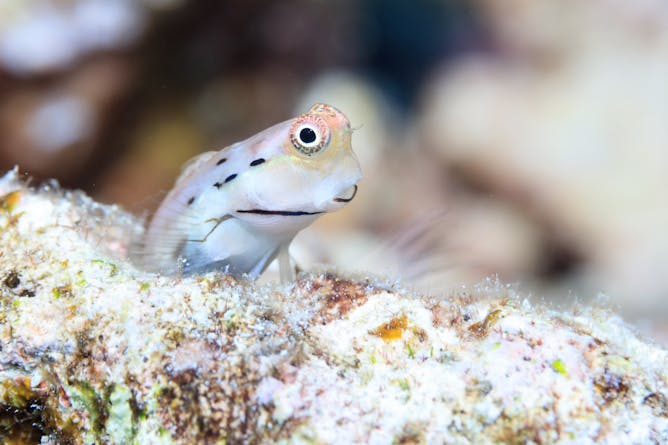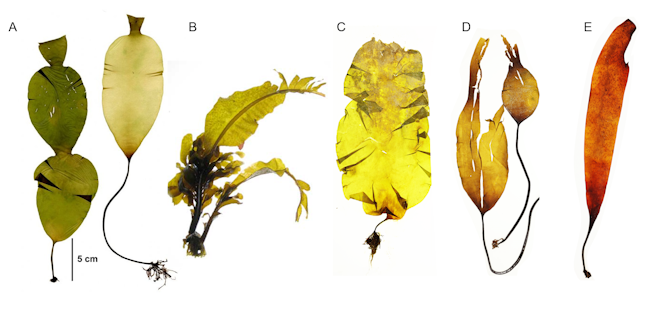|
|
|
Cut the oatmeal at breakfast to reduce sugar spikes
|
|
One in 12 people around the world has Type 2 diabetes. Today in The Conversation Canada, Jonathan Little of the School of Health and Exercise Sciences at the University of British Columbia writes about new research that offers some simple but smart advice for people suffering from the disease: restrict carbohydrate-containing foods at breakfast.
Elsewhere, we head you into the weekend with some other great reads: the impact of food waste on greenhouse gas emissions (and in Canada we waste about $50 billion of food annually); the important role Western Canada could play in solving the worldwide shortage of helium; what scientists have learned about tiny, cute fish and the impact they're having in the marine food chain in coral reefs.
And finally…I’m not sure what I’m going to do with myself this Sunday night, now that Game of Thrones is over. The finale last weekend has been praised, criticized and analyzed a million different ways. Political scientist Stefan Dolgert of Brock University offers a unique take by making the case that Daenerys Targaryen was the actual heroine of the series – a strong woman who knew that to succeed in politics, you need to crush your enemies.
I've also included a couple of excellent analyses about Narendra Modi's impressive victory in the Indian election.
Regards,
|
|
|
Today's Featured Articles
|

Eating a low-carbohydrate breakfast could help curb cravings for treats later in the day – a simple and powerful strategy not just for those with Type 2 diabetes, but for anyone looking to improve their diet.
(Shutterstock)
Jonathan Little, University of British Columbia
New research shows that eating a low-carbohydrate breakfast both reduces sugar spikes in the morning and reduces cravings for sweet foods in the evening, in people with Type 2 diabetes.
|

Giving food that would otherwise go to landfill to hungry people does little to ensure the well-being of Canadians who are food insecure.
(Shutterstock)
Elaine Power, Queen's University, Ontario
Reducing food waste by feeding hungry Canadians is a simplistic solution that is deeply problematic and morally distressing.
|

Helium is a vital element in several industries, and a global shortage could have devastating effects.
Shutterstock
Scott Mundle, University of Windsor
Renewed helium exploration in Western Canada may provide new sources to address the global shortage.
|

Most species of tiny coral reef fish are overlooked because of their small size. Now, their importance for coral reef ecosystems has put these fish and their unique way of life in the limelight.
Sinclair-Taylor Tane
Simon Brandl, Simon Fraser University; Isabelle Côté, Simon Fraser University
New research reveals that miniature, brightly coloured fish play an outsized role in the marine food chain in coral reefs.
|

Dany and Jon are seen right before he knifes her in the heart – and the back, for that matter.
Courtesy HBO
Stefan Dolgert, Brock University
It's tempting to go along with the notion of Daenerys as Mad Queen in Game of Thrones, but what if, instead Dany was the real heroine of the series, and Jon Snow the real heel?
|
La Conversation Canada
|

Une multitude de feuilles démontrent la diversité du varech dans les forêts sous-marines de l’Arctique.
Karen Filbee-Dexter
Karen Filbee-Dexter, Université Laval
Avec le réchauffement de la planète, les forêts sous-marines de varech prolifèrent en Arctique et pourraient constituer une ressource potentielle.
|
Politics
|
-
Katharine Adeney, University of Nottingham
The Bharatiya Janata Party of Narendra Modi has claimed victory in the world's biggest democratic exercise.
-
Jagannadha Pawan Tamvada, University of Southampton
In Narendra Modi, India has found a development messiah.
-
Anamaria Dutceac Segesten, Lund University; Gioacchino Garofoli, Università degli Studi dell’Insubria; Jacques Paulus Koenis, Maastricht University; John Erik Fossum, University of Oslo; Kai Arzheimer, Johannes Gutenberg University of Mainz; Vít Hloušek, Masaryk University
Ahead of the 2019 EU elections, experts from the Czech Republic, Germany, Italy, the Netherlands, Sweden and Norway look at how the EU is perceived, key issues and perspectives for the election.
|
|
| |
| |
| |
| |

|
| |
| |
| |
| |
| |
| |
| |
| |
|
|
|
|
|
|
|